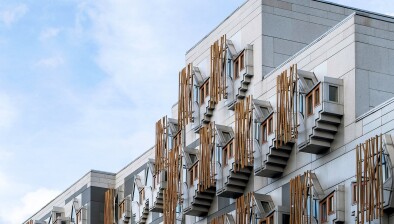Chancellor announces Autumn Budget date for November

Chancellor Rachel Reeves has confirmed her second Budget will be delivered on Wednesday, 26 November, setting the stage for a critical fiscal statement amid a turbulent economic backdrop.
After a challenging first year in power, the UK government is under pressure to stabilise the economy following a series of setbacks and policy U-turns.
The inaugural Budget in October 2024 saw the government introduce tax increases worth £36 billion a year, including bringing pensions into the inheritance tax (IHT) net, increasing capital gains tax (CGT) rates, and hiking National Insurance costs for employers. However, a plan to save £1.5bn by scrapping Winter Fuel Payments for all pensioners was eventually watered down.
According to Rachel Vahey, head of public policy at AJ Bell, the UK government has “precious few options” to raise revenue. Having promised at the election not to raise rates of income tax, National Insurance, or VAT for “working people”, the Chancellor is in a tight fiscal corner. “The current reading of the economy doesn’t make for good news,” Ms Vahey noted. “Although growth received a slight boost last month, it remains relatively weak. Whereas long-term borrowing is rising fast.”
With the Office for Budget Responsibility now beginning its assessment, speculation is mounting over which areas the Chancellor will target to balance the books.
Potential Policy Measures on the Table
Savings and Pensions
A key area for reform is the ISA system. The government has stated its ambition to foster a retail investment culture, and simplifying the current landscape is seen as a straightforward, zero-cost way to achieve this. Tom Selby, director of public policy at AJ Bell, suggests combining Cash ISAs and Stocks and Shares ISAs into a single product to remove barriers to investing. “We estimate at least £100bn of money held in Cash ISAs could be put to work investing for the long term,” he said.
For pensions, the primary call from industry experts is for stability. After constant speculation about changes to tax relief and tax-free cash, Mr Selby advocates for a ‘Pensions Tax Lock’ to pledge no changes for the remainder of this Parliament, arguing that constant uncertainty “causes untold damage to people’s confidence in retirement saving”.
Wealth and Property Taxes
With major taxes on income off-limits, wealth and assets are seen as likely targets. Having already raided IHT reliefs for farmers and pensions, another move on what is one of Britain’s most hated taxes could come at a political cost. Options include reducing IHT thresholds or extending the ‘seven-year rule’ for lifetime gifts.
Capital gains tax (CGT) is another area where Rachel Reeves may have “unfinished business,” said Laith Khalaf, AJ Bell’s head of investment analysis. Equalising CGT rates with income tax could provide a short-term revenue boost as investors crystallise gains, but risks discouraging long-term investment and entrepreneurship.
More radical options include a ‘mansion tax’ on high-value properties or a broader wealth tax. However, both face significant practical and political hurdles. A property tax would be deeply unpopular, particularly in London and the South East, and could create a logjam in the housing market. A wealth tax on assets above £10 million, while backed by some MPs, raises complex questions of valuation, fairness, and the risk of capital flight.
Other Revenue Raising Options
A politically tempting but risky option is applying National Insurance to retirement incomes. While it could be argued this does not technically break the promise on taxes for “working people,” it would hit pensioners hard.
Specific sectors may also be targeted. A tax raid on banks, which are forecast to make combined profits of £44bn in 2025, could be seen as an easy political win but might stifle lending and hinder economic growth. Similarly, increasing duties on gambling companies – so-called ‘sin taxes’ – could prove popular, though there are concerns it may push consumers towards unregulated black markets and negatively impact sports sponsorship.
Finally, the Chancellor could choose to extend the current freeze on income tax thresholds beyond 2028. However, this would be a major U-turn, as Reeves previously declared she would not freeze thresholds because of the impact on working people. With the public finances in a precarious state, the Chancellor faces an unappetising menu of choices on 26 November.







